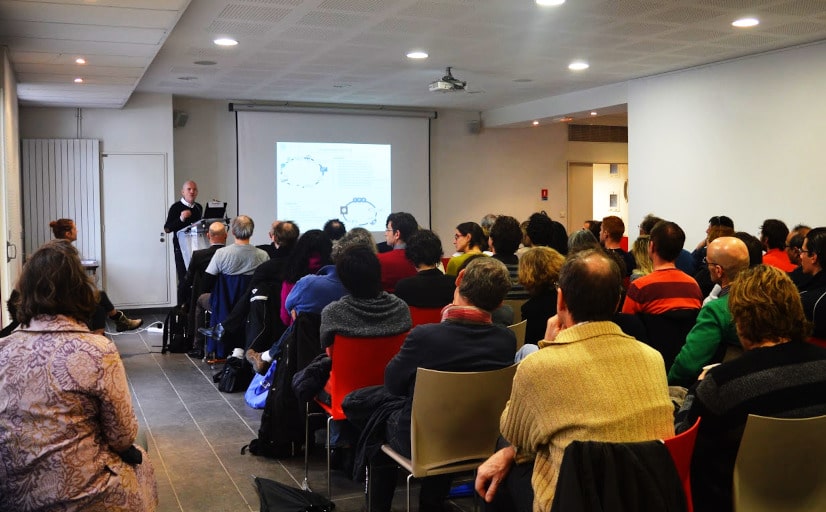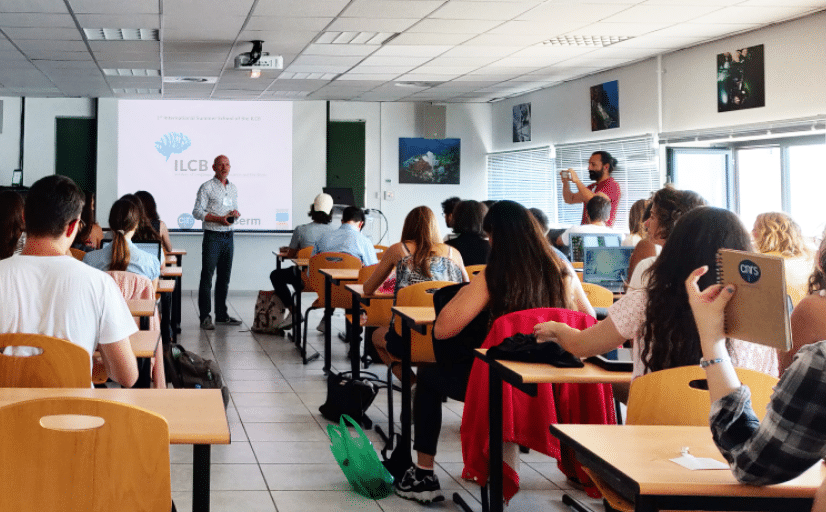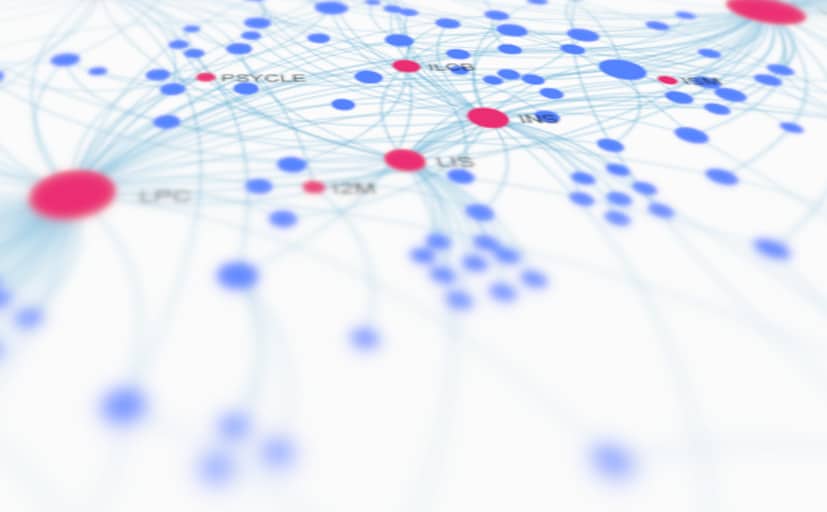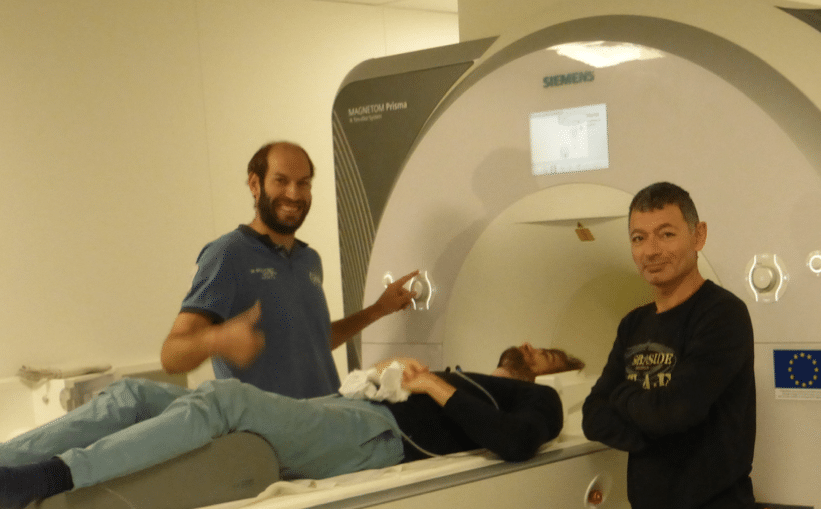



FEATURED PUBLICATIONS
Speaking to a common tune: Betweenspeaker convergence in voice fundamental frequency in a joint speech production task Vincent Aubanel, Noël Nguyen
2020 PLOS/ONE
read more >>
Learning to Read and Dyslexia: From Theory to Intervention Through Personalized Computational Models Johannes C. Ziegler, Conrad Perry, Marco Zorzi
2020 Current Directions in Psychological Science
read more >>
Error-based learning and lexical competition in word production: Evidence from multilingual naming Elin Runnqvist, Kristof Strijkers, Albert Costa
2019 PLOS/ONE
read more >>
Constraints on the lexicons of human languages have cognitive roots present in baboons (Papio papio) Emmanuel Chemla, Isabelle Dautriche, Brian Buccola, and Joël Fagot.
2019 PNAS
read more >>
High-fidelity copying is not necessarily the key to cumulative cultural evolution: a study in monkeys and children Carmen Saldana, Joël Fagot, Simon Kirby, Kenny Smith, Nicolas Claidière
2019 Proceedings of the royal society B
read more >>
Bringing together experts in linguistics, neuroscience, psychology, medicine and computer science to understand and to model the way that language functions.
The objective is to create a generic model of the processing of language and its cerebral bases.
SUMMER SCHOOL
The 3d Edition of the ILCB Summer School offers Introductory, Intermerdiate and Advanced Classes in four core fields of Cognitive Science, reflecting the expertise of the Institute.
read more >>
PhD PROGRAM
An interdisciplinary focus on language research, with interdisciplinary theory and practice trainings at basic and advanced level courses in all relevant disciplines.
read more >>
MASTER
The MaSCo, a new MA in Cognitive Science, provides an advanced scientific curriculum on human cognition, as well as a technological and methodological expertise in evaluation, analysis and modeling of cognitive processes.
read more >>
TRAINING
Advanced trainings are offered to the ILCB members
read more >>
Recent
news and events
Upcoming Events Loop
It seems we can’t find what you’re looking for. Perhaps searching can help.
Post Loop
A Small, but Vocal, Brain
Pascal Belin, Régis Trapeau, and Manon Obliger-Debouche. 2023. Cell Reports 42 (6): 112651 — @HAL In the May issue of Cell Reports, Jafari et al.1 used ultra-high-field fMRI to show that marmosets, like humans and macaques, possess an extensive network of voice-selective areas.
The Relevance of the Unique Anatomy of the Human Prefrontal Operculum to the Emergence of Speech
Céline Amiez, Charles Verstraete, Jérôme Sallet, Fadila Hadj-Bouziane, Suliann Ben Hamed, Adrien Meguerditchian, Emmanuel Procyk, et al. 2023. Communications Biology 6 (1): 693 — @HAL Identifying the evolutionary origins of human speech remains a topic of intense scientific interest. Here we describe a unique feature of adult human neuroanatomy compared to chimpanzees and other primates […]
A Revised Perspective on the Evolution of the Lateral Frontal Cortex in Primates
Céline Amiez, Jérôme Sallet, Camille Giacometti, Charles Verstraete, Clémence Gandaux, Valentine Morel-Latour, Adrien Meguerditchian, et al. 2023. Science Advances 9 (20): eadf9445 — @HAL Detailed neuroscientific data from macaque monkeys have been essential in advancing understanding of human frontal cortex function, particularly for regions of frontal cortex without homologs in other model species. However, precise […]
Effects of Biscriptuality on Graphomotor Coordination Dynamics
Gaëlle Alhaddad, Jérémy Danna, Celeste Younes-Harb, Jean-Luc Velay, and Marieke Longcamp. 2023. Journal of Experimental Psychology: Human Perception and Performance 49 (2): 177–87 — @HAL Biscriptuality is the ability to write in two different writing systems. The aim of this study was toexamine the effects of biscriptuality on graphomotor coordination dynamics in right-handed adults.Thirty-four French […]
Sonja A. Kotz
Prof. Sonja Kotz will hold the ILCB IMERA chair this semester. Prof. Sonja Kotz is a translational cognitive neuroscientist, investigating temporal, rhythmic, and formal predictions and control mechanisms in audition, music, and speech across the lifespan, in animal models, and patients (PD, stroke, tinnitus, psychosis, dyslexia). In her research she utilizes a wide range of […]
Atypical Hemispheric Re-Organization of the Reading Network in High-Functioning Adults with Dyslexia
Participants read words while their neural activity was recorded in an fMRI scanner. The activity in the regions of interest (ROI) highlighted in A, was correlated with word-feature matrices defined by the degree of semantic similarity (SemModel) or orthographic similarity (OrthModel), shown in B. Representational similarity analysis (RSA) revealed atypical hemispheric organization of the reading […]
Automated processing on multimodal interactions annotations
Lise Habib Dassetto, Jules Cauzinilles, Marie Montant (CRPN) with Benoit Favre, (LIS), Cristel Portes (LPL) & Alban Lemasson (Univ Rennes I)
11th Implicit Learning Seminar
Arnaud Rey, Elisa Gavard, Laure Tosatto, Jacob Maaz, Leonardo Pinto Arata (CRPN) & Laurent Waroquier (Psycle) Implicit Learning Seminar
Simulation de comportements d’écoute d’un agent conversationnel animé
Magalie Ochs (LIS) & Auriane Boudin (LPL)
Convergence between listeners in joint speech perception
Noël Nguyen, Leonardo Lancia, Qingye Shen (LPL) with Julien Diard (LPNC, Univ Grenoble Alpes) & Ladislas Nalborczyk (NeuroSpin, Univ Paris-Saclay)



